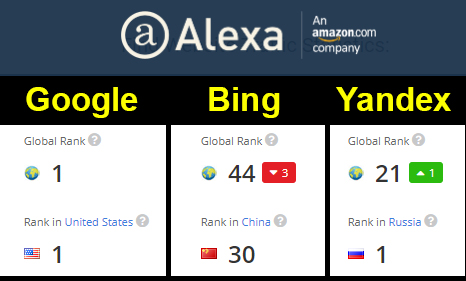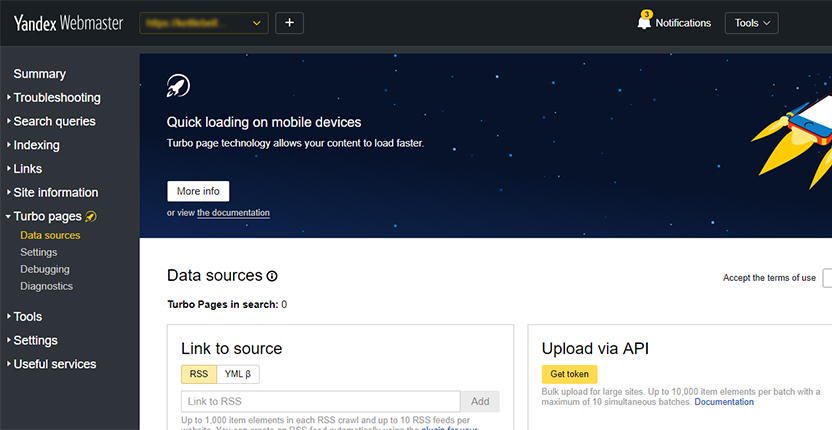As a web designer and SEO enthusiast, I’m always looking for ways to gain an edge over the competition. For web design, optimizing my server and sites is something I’ve been doing for years. I have a very good grasp on what needs to be done to increase website speed and decrease page size. SEO, on the other hand, is difficult to gauge which strategies prove effective.
Everyone can agree that good, structured and informative content is the foundation to successfully ranking in search engines. However, is that alone, enough? I don’t think so. There is the belief that backlinks as a ranking factor have become less prominent over the last couple of years. That could be true for many search engines, but I don’t think that applies to Google.
Establishing a presence online goes hand-in-hand with links pointing back to your branded website. I believe Google places high trust in websites that are well-known throughout the internet. Whether that be an article from a high authority site, social media profiles, and even comments on relevant blogs and forums. If you’re not talking about your brand outside of your website, you’re not promoting the content effectively.
This is not to imply that simply spamming your domain name across the web will boost your rankings. Google is smarter than that. Other search engines are smarter than that. Information needs to be presented in such a way that it provides exceptional value to the reader.
While you have limited control over how your content is displayed on other websites, you can control many aspects of how it is shown in search engines. This is accomplished primarily through webmaster tools which help to identify problems and ways to optimize your pages and website.
What are Webmaster Tools?
Webmaster Tools offer webmasters (go figure!) a way to view the performance of registered websites in regards to a multitude of things. Typical components consist of a timeline of search ranked queries, a list of indexed pages along with a tool to submit newly created pages, and much much more.
Google pioneered this service and recently relaunched a new and improved version called Google Search Console. Bing was the next major search engine to provide webmaster tools. For the longest time, I thought it was just those two companies offering this service. I was wrong.
Introducing Yandex Webmaster Tools
Everyone in the U.S. has heard of Google. Many others are familiar with Bing. Yandex? You’d be hard-pressed to not get a confused look from your average joe or jane U.S. citizen after uttering the word. A perfect analogy is that Yandex is to search engines what Soccer is to sports here in the states.
Of course, soccer is the most popular sport in the world, but in America, it gets zero recognition outside of the World Cup. So while Yandex is relatively unknown to us U.S. folks, it is extremely popular in Europe. Particularly in its origin country of Russia, where it is ranked #1. Compare the global Alexa ranks of Google, Bing, and Yandex and see for yourself.

Alexa Rank of Google, Bing and Yandex
Yandex Ranks Higher Than Bing Globally
Yandex’s global rank is double that of Bing! While that might be great for everyone outside of the U.S., why should anyone inside the country care? I’ll tell you why. It’s all about gobbling every crumb of search engine real estate. Maybe you’re thinking that Yandex has no presence here in America. Think again. Check out this article from 2015 that shows Yandex cracking the top 100 websites in the U.S. Now look at the top U.S. websites according to Alexa, #35. That’s more popular than Yelp (#44) and Walmart (#46).
It’s important to note that Yandex offers several flavors of their search engine based on different languages. In the case of top U.S. websites, it is Yandex.ru that is included. Does this mean that only Russian-speaking U.S. visitors and residents are using the website? Or does that also include data from the English and other language versions? I’m not sure, but if you’re determined to get every possible advantage in SEO, it makes sense to get your website indexed in Yandex and also sign up for their webmaster tools.
A Brief Overview of Yandex Webmaster Tools
I apologize for not getting to the “meat” of this post until now. I felt it necessary to provide some context as to the importance Yandex plays in the search engine world. That being said, their webmaster tools interface is actually very clean and elegant. I signed up for the English version, but I believe that you can also sign up on other language versions that correspond to their appropriate search engine counterpart.
One strange thing is that emails from the Yandex service are in Russian by default. Although, the webmail client is in English and each message does have a translation button option. It’s a minor issue and not one that should deter you from signing up.
Now, let’s go over some of the core components.
Summary
Exactly as described. This tab gives you an overview of any site problems, crawl statistics, and search query terms with clicks and impressions. This data will slowly populate over time as Yandex begins to crawl your sitemap and gather information.
Search Queries
This section provides a more in-depth look of search terms performed on Yandex that lead to impressions and clicks of your web pages. You can even group search queries for better organization if you wish.
A sub-section, recommended queries, will have you press a button to begin compiling such a list. Right now, since I’ve only signed up just yesterday, that information is not visible.
Indexing
View crawl statistics, adjust crawl rate, submit sitemaps, view site structure, and check the status of a URL. Pretty basic and expected stuff. There’s also an option to monitor important pages of your choosing and enter a list of your top-priority pages for re-indexing.
Links
Two sub-sections, one for internal and the other for external, make up the links tab. I show no data for either as of yet. It’s a little puzzling as I would at least expect some internal links to be found. Maybe it just takes some time? I’ll be sure to keep my eye on both sub-sections.
Turbo Pages
As far as I can tell this is Yandex’s version of AMP for Google. There’s an option to provide a Yandex-compatible RSS feed that will generate lightweight pages of your website that are hosted on Yandex’s server. This is especially handy for mobile visitors to get access to your website super quickly.
I haven’t personally tried this feature and I’m not sure that I will. It does require that your RSS feed conforms to the necessary Yandex Turbo Pages standards. I did see a couple WordPress plugins that do just that. Since I’m more concerned about visibility rather than speed, I don’t feel there is an immediate need to configure this. However, it is nice that they offer something similar to Google.
Other Stuff
Other than the previously mentioned features, you have your standard settings and informational sections. It’s mostly just account settings, validation tools, and notification configurations. Nothing to really get excited about but essential none-the-less.
Conclusion
While you shouldn’t expect to get a massive traffic boost from Yandex, I would say it is worth the minimal effort to link your portfolio of websites into their webmaster tools. It gives SEO Agencies an extra report to generate for their clients while helping to increase visibility in non-U.S. markets.
Those websites that tie into Russian culture should no doubt benefit from the exposure that Yandex provides. The niche website I’ve been building over the last couple of months fits that category. My hope is to see some referral traffic appear that rivals Bing, Yahoo, and DuckDuckGo. When you take all of these search engines into consideration they offer a good chunk of organic traffic to complement Google’s.


